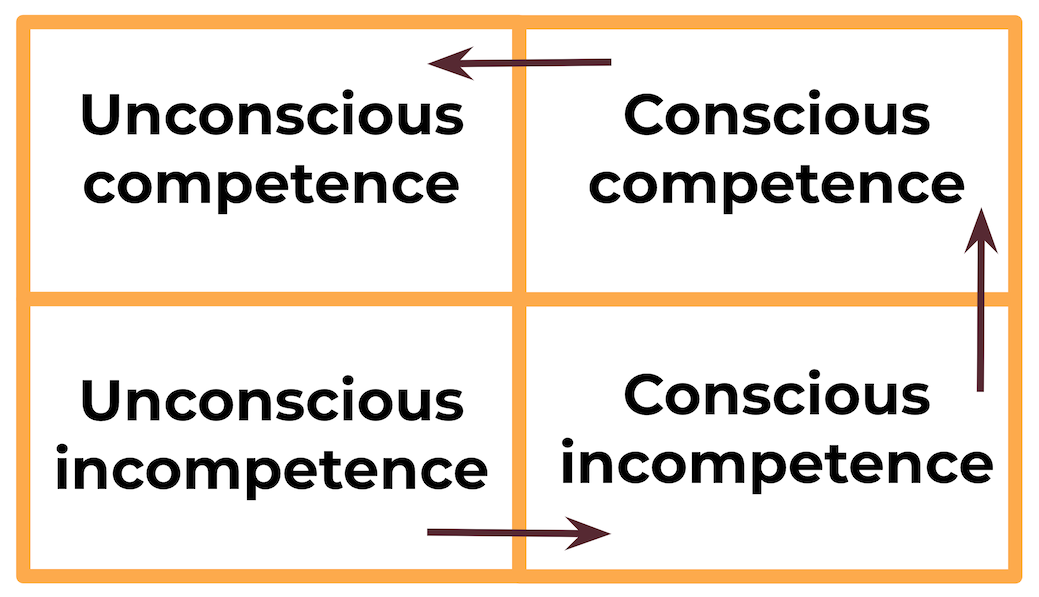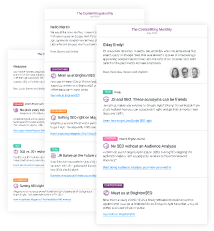Unconscious Incompetence: why it's dangerous for SEOs and how to overcome it
-
May 28, 2019
So if you don’t check yourself, validate your own performance, your methods and assume you’re doing well because you have “XX years of experience”, you could be becoming incompetent and be totally unaware of the fact.
Hi Chris! Can you tell us a little about yourself?
I'm Head of Search at StrategiQ (opens in a new tab), a marketing agency based out of the East of England and Midlands in the UK. My job is primarily focused on the performance of our clients, whether they are development projects, marketing retainers or specialist single-channel campaigns.
By trade I'm a Tech SEO, although my roots actually come from Content and Paid Search too - equally, I handle the majority of Google Analytics/GTM and Data Studio work through the agency, an area I'm rapidly training the rest of the team here on.
Outside of the 9-5 I write for State of Digital (opens in a new tab) as a regular contributor and have a handful of speaking engagements throughout the year - BrightonSEO, State of Digital, Search London, Digital Olympus, Optimisey (opens in a new tab) to name a few. I'm also a certified trainer with SISTRIX here in the UK, a platform I'm a little bit obsessed about recently. I also have a bit of a love of Webinars and Podcasts and have been featured SEMRush on a few different subjects in the last year.
A lot of what I do now is based around training/presenting, it's something I get a massive buzz out of. This drives a lot of my thinking/perspective on SEO/search, we (as an industry) tend to think in too siloed a fashion and this can lead to some issues. Probably the aspect which is most apparent to me is how we validate our knowledge when we can take nothing for certain and "what works" often isn't best practice OR something you want to be doing.
One of my recent posts (opens in a new tab) was largely preoccupied with the idea of how we check ourselves and stop ourselves from becoming unconsciously incompetent - something we all need to be aware of.
What do you mean with "becoming unconsciously incompetent"?
Keeping it really simple, "becoming unconsciously incompetent" is where you become less effective or less able to do your job without realizing it.
So if you don't check yourself, validate your own performance, your methods and assume you're doing well because you have "XX years of experience", you could be becoming incompetent and be totally unaware of the fact.
This is where the Conscious Competence Matrix comes in.
How does the Conscious Competence Matrix work?

The matrix just illustrates how someone moves through the various stages of development (opens in a new tab) as their knowledge increases; this starts in "not knowing what they don't know" (Unconscious Incompetence) through to "effortlessly effective" (Unconscious Competence).
The two middle steps in the journey outline the different stages of training, being aware that they need further development (Conscious Incompetence) and then a level of competence that has to be actively sought and maintained.
Where people land in this is particularly interesting. Those who I train and work with daily are generally between conscious incompetence and conscious competence. We work to produce a safe environment which challenges people and helps them achieve the next stage in learning (which is not always easy!).
However, if you go to a pre-party at a major conference you always find someone who believes they "own it" and are only at the conference for the drinks because they can't learn any more. I have worked with people like this on more than one occasion - their learning journey is at an end (in their mind).
There are so many people that are (publicly) at odds with imposter syndrome - but I genuinely believe you can be suffering from unconscious incompetence AND have a constant sense of imposter syndrome.
It's almost a case of "I feel like I'm not good enough to succeed" mixed with "it's not my fault this isn't working" - a kind of victim state, it's a pretty conflicting space to be in, and usually is born out of a kind of stress/anxiety mix. But I've met plenty of SEOs with a sense that they don't belong in their role, but who are actually great at their job.
Why is it so bad for SEOs, in particular, to be unconsciously incompetent?
So little of what we do is set in stone and so many of our skills are based around being reactive. Incompetence could be one algorithm update away. That said, there are so many things we can do to mitigate this.
What does it take, in your opinion, for an SEO to be competent?
I think competence in SEO is:
- Being curious
- Reviewing the outcomes of actions
- Taking the opportunity to recreate results wherever possible
Okay, there are some relatively technical competencies, that we all need broadly, that fall into the following:
- Understanding of how search engines work
- What motivates search engines
- What users want and how to satisfy this
- Understanding what works – i.e. how to get a website ranking.
How does the fact that there is little to no formal education for learning SEO factor into this?
Formal education brings two huge advantages - an education which is validated by an awarding body and a recognized way to score your level of achievement on completion. Within SEO at the moment there's no recognized "standard" way to measure competency, and opinions of what makes someone competent in this field are highly debated.
It is entirely possible to gain a great level training, a mentor who will challenge and push you, but that is pretty much dependent on where you work (i.e. large SEO agencies have a significant footprint when training is concerned). What's missing is any agreement on what "good looks like" - which makes things challenging.
I do think that there is a number of people who have filled the gaps left by formal educational institutions, those who research, interrogate, teach and lead the thought in the industry. Although, there's a large amount of disquiet about who gets recognized and why - maybe this just increases the volume in the SEO echo-chamber and we all get worse at our jobs and just aren't aware of it? Pure irony if this is true! 🙂
How does unconscious incompetence hurt the SEO industry?
It only hurts it a little. The SEO industry is still growing, our skills are sought after more and more - so that's generally a good sign!
Perception of those on the outside looking in probably is the main source of any pain, however. Overconfidence in ability and being unable to actually deliver, have helped to contribute to the perception that SEO is a scam (that and the actual scammers still at work).
A near-constant identity crisis AND the fact that we end up trusting/sharing information which isn't true or accurate doesn't do anyone any favors. The most recent example is the rel=next/prev (opens in a new tab) markup debacle. Google made a mistake (opens in a new tab), and while they didn't handle the whole thing as well as they could, the impact is that people (myself included) have spent the last few years ensuring a technical standard is in place that simply is not used.
This kind of incompetency has financial implications and does no favors to SEOs' reputations. I don't know how we (as an industry) can mitigate being misled by Google, but we have to make sure incidents like this are as few and far between as possible.
What can we do to prevent unconscious incompetence from hurting the SEO industry?
I have been testing a kind of mental framework, to help ensure we think critically about what we do. In the simplest form, it consists of the following questions:
- What do I hope to achieve with this change?
- Why do I believe my actions will lead to this outcome?
- What was the outcome?
- Why was this?
- What do I need to change next time OR how do I reliably recreate this success?
This approach can really help you understand why you're doing what you're doing, make the case to someone else (or explain your actions) and then interrogate the results from it. Of course, it really hinges on people actually being honest with themselves here!
Another key point to note is that, if you're new to SEO, you are unlikely to have answers to questions 2, 4 and 5. Even if you're not new to SEO, having people around you to help you think critically or check/validate your approach, it can help.
Spotlight errors and failures as much as successes - but please do it constructively. Giving actionable feedback in the right way can be a challenge. In a controlled environment this is easier to manage, but throw it open to the wiles of social media - where we have too many keyboard warriors - and the constructive nature of dialogue breaks down rapidly.
If you do nothing else, just stay curious - the minute curiosity diminishes, everything else can follow.
Continue reading in-depth interviews with SEO specialists
You can check out our previous editions of SEO in Focus here:
-
May 2019:
How to Win Featured Snippets Like a Boss with Izzi Smith -
April 2019:
Knowledge Graph: what is it and why is it important? with Jason Barnard -
March 2019:
How real-time data changes the way we do SEO with Gerry White -
February 2019:
Getting Things Done with Edge SEO with Dan Taylor -
January 2019:
Why Your SEO Process Needs To Be Agile with Kevin Indig -
December 2018:
Why Crawler Traps Can Seriously Hurt Your SEO with Dawn Anderson



